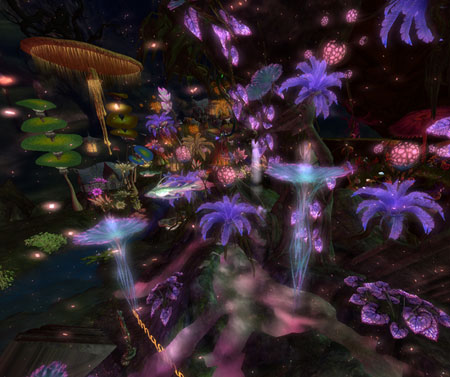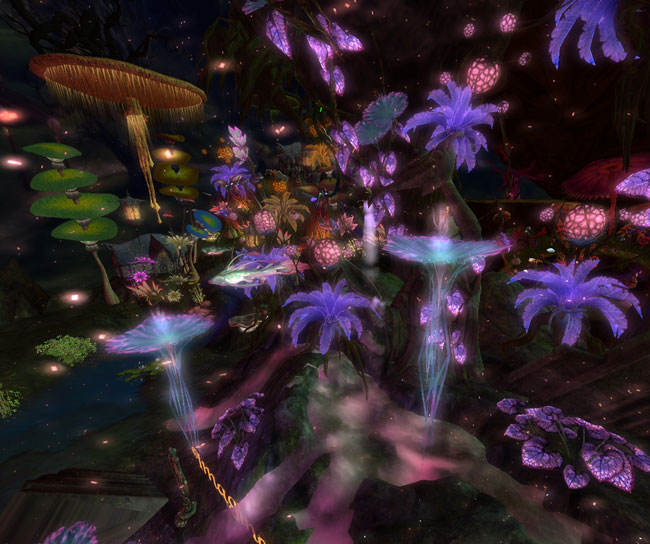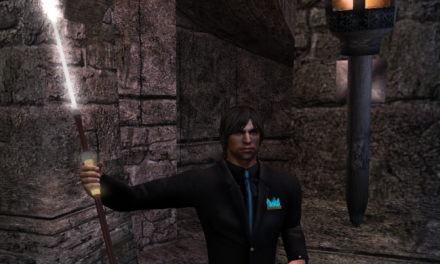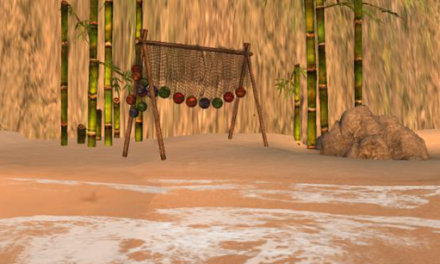 Godmother Fate
Godmother Fate
by
Alexandra Grunberg
The Great Hall at the heart of the faerie kingdom was packed, an easy feat for any gathering of normal size, as the Hall was located within a hollowed log, but a much greater feat for a gathering of creatures so small. Of course, the faeries could grow to the size of a human, or larger, when called upon by their ward, but this was a gathering for the otherworldly, by the otherworldly. Any mortal welcomed into the faerie kingdom – into one of the few spaces reserved for all creatures, from humans to trolls – could be shrunk down to what all faeries agree is a much more appropriate size for any individual. Anything above three inches is pompous, and one must assume the overgrown individual is overcompensating for a range of faults and shortcomings.
The faeries bustled amongst each other, chattering encouragement and gossip and complaints and blessings in the same breath, and moving on to the next acquaintance before they even reached the end of their sentence. Lithe creatures with long arms and kind but rather vacant expressions laughed freely at joke and criticism alike. Squat women, as wide as they were tall either due to girth or the layers of their petticoats, skittered around the Hall with pockets full of chocolates and candy, offering them to anyone who was not already busy chewing a treat. Tall women, tall for this company, glided through the crowds that parted before them almost unconsciously, their blue dresses trailing behind them like rivulets of fallen rain, their skin sparkling a distinctly different hue, listening to all but rarely taking part in any exchange.
It could have been mistaken for any other standard faerie affair; the birth of a new king or destined warrior, a swaying of allegiance from elves to dwarves or back again, the marriage of a child of the faeries to a worthy and virtuous mortal lad or lass. It could have been business as usual, if it were not for the quickly bitten lip, the poorly hidden tremor. A voice could have been cracking in excitement, not concern. A group could have been huddled together for secrets, not protection. But all the faeries knew why they were here, all the faeries saw each sign of wrongness, especially that one glaring sign, that one faerie that did not match, that was never came to the Great Hall, and yet today, here she was.
The faeries waited for the last absent-minded waif to arrive before they took their seats on the circles of toadstools that curled around the room and waited for the trial to begin.
The three judges, all members of the race of those tall fairies in blue, sat on slightly elevated toadstools, closer to the center of the court. Two of them sparkled, one with hair as white as diamonds, one with hair as red as rubies, their brightness shining with a kindness beneath the solemnity of their expressions. The third faerie glistened, but more in matte. Unlike her compatriots who let their long locks fall down their backs as freely as the waves of their dresses, this faerie kept her black hair tied tight and high on her head, making her look even taller, perhaps a little more authoritative. It would be hard to argue with the decision of someone so severe.
She held a scroll on her lap, scratching with an ink-dipped quill that required no ink, assigning faeries to the names on the paper, names of children not yet born. Miss Evelyn Blade. Miss Quintessence Pique. Miss Waverly Bog. Always another name appeared at the end of the list, and yet there was always a faerie ready to be put to work, another “Miss” reporting for duty. She could not afford to waste time with a trial, but the trial was necessary, so she rolled up the scroll and tucked it and the quill into the thick black belt around her waist. She cleared her throat, and though it was not loud, all the faeries hushed immediately.
“I call Miss Lizzie Milliner to answer in front of the court,” stated the black-haired faerie.
One of the squat faeries rose from her toadstool and walked to the center of the Hall, and to her credit, hid her trembling rather well.
“Miss Lizzie,” said the diamond judge. “You are familiar with the mortal child, Lavinia Straps?”
“Yes,” squeaked Miss Lizzie.
She had spent more time among the mice and voles than mortals.
“You were present at her birth, were you not?” asked the ruby judge.
Her smile was soft, but her eyes glinted the same stone red as her hair, and Miss Lizzie let out a few pure squeaks before she could find words.
“I was present at the birth of Lavinia Straps.”
“You gave her gifts?” asked the diamond faerie.
“Yes, yes,” said Lavinia. “I did. I gave her patience, and fortitude, and hope.”
“Why those gifts?” asked the diamond faerie.
Miss Lizzie shifted, half-shrugged, the rustling of her many and multi-colored skirts by far the loudest sound in the Hall.
“Some girls need beauty,” said Miss Lizzie. “Some need talents for sewing or song. Some need charisma, or light feet, or dainty hands. And some girls are not so lucky, and their lives will not be so easy, and their gifts are more than decoration. I did not think Lavinia would benefit from a sunny disposition. So, I gave her patience, and fortitude, and hope.”
The faeries of the hall murmured, sadly, sympathetically. It was always nice when you met a princess at their birth, a life destined for comfort and, if not joy, contentment, but those births were quite rare. Most often you met an average baby, a normal baby, but that did not mean you had to be entirely practical. You could usually waste at least one gift on a frivolous kindness.
“You knew she would have a hard life?” asked the ruby faerie.
“Yes,” said Miss Lizzie. “I consulted…”
She trailed off, and the murmuring went silent, and everyone tried not to look at the faerie in the room that was so unlike the others, one of the kind that never came to the Hall, who never had occasion to meet with them outside of the occasional consultation that occurred when a child was born. When a faerie was brave enough to consult. That unusual faerie was silent, but she had been silent from the start, and she did not acknowledge the attention that was now centered on her, so obvious despite how much the others tried to hide it.
“I’m allowed a consultation,” said Miss Lizzie. “I followed the protocol.”
“The protocol is becoming the godmother to the baby you have blessed,” said the black-haired faerie.
Was her dress always that deep a blue? Did it always ripple like it was touched by a storm? Or did the thunder of her voice set off waves that even tinged her companions’ trains with the promise of darkness and violence? Every faerie leaned back, leaned away, but poor Miss Lizzie was stuck standing in front of the faerie whose eyes, black as her hair, black as her skin, black as the pure onyx that colored her head to toe, bore into her with the weight of condemnation.
“Why did you abandon Lavinia Straps?”
At this accusation, all the fear seemed to rise out of Miss Lizzie, and she rose with it, nearly a millimeter taller, perhaps even two.
“I did not abandon her,” said Miss Lizzie. “Yes, I’ll admit that I stepped down from my role as her godmother—”
A few of the witnesses gasped, but quickly shushed under a firm diamond glare.
“But I could not continue in that position. It would have been cruel. It would have been wrong.”
“Explain,” demanded the faerie, unmoving, a statue of onyx.
“A godmother must continue to give to the child she watches throughout that child’s life,” said Miss Lizzie. “I gave her all I could when I gave her the three gifts. There was nothing else I could give her that would help her through her troubles. There was nothing else I could do to support her. She needed another faerie.”
“And you thought you could just assign one for her?” asked the ruby faerie. “A change in godmother is uncommon, but not unheard of. You know a counsel must be consulted, the applications must be filed—”
“I didn’t assign her,” said Miss Lizzie. “She just… came.”
All eyes avoided the toadstool in the back of the rows, sinking under the weight of the faerie who graced it, already starting to wilt and rot.
“And you didn’t think to question her?” asked the onyx faerie.
“No.”
Miss Lizzie did not explain herself, but all the faeries in attendance nodded and whispered in agreement. No one questioned those mysterious faeries. No one said anything more to them than they had to, or spent any more time with them than they needed to. If she had shown up to claim any one of their wards, each faerie in the room would have turned and run as far away as they could manage.
“Miss Lizzie,” said the onyx faerie.
Miss Lizzie held her breath, and all the faeries in the room leaned in. All but one, who did not seem to care much about the outcome of the trial, or her surroundings, or anything at all.
“You have been found innocent of any suspected wrong doing.”
A few of the faeries, the ones with the open smiles, clapped. The round ones in petticoats contained themselves a little more with content smirks and a little happy humming. The blue-dressed faeries inclined their heads, slightly, too small to be a nod, but just enough to concur with the verdict.
“You may return to your seat.”
By the word “return,” Miss Lizzie was already shuffling to her toadstool, sitting down heavily, the stress still too fresh to feel any true relief. A few friends clapped her on the back, but the faerie kept her eyes on her feet and her hands clasped in her lap.
The general gaiety over the verdict was quickly subdued with the onyx faerie cleared her throat.
Now the eyes of the court no longer hid their gaze. Now everyone was looking, openly, with implicit permission, at the faerie in the back.
“I call Lady Fate to answer in front of the court.”
Nobody whispered when the faerie rose from her toadstool. Nobody moved as she glided across the floor, her wide flat feet clearly stepping in heavy, graceless jolts, while she still appeared to float, effortlessly. Her dress was not in tatters, it was not worn, but it gave the impression of being very, very old, threatening to fall apart with each step, holding on by a thread. But this faerie was known to possess very durable thread. Her skin was the color of ash, and just as insubstantial, just as soft and dry and almost gone. Her face… it was hard to describe her face. Some of the faeries, the younger ones who still dared, the ones who had not yet visited her in their foolish and inevitable curiosity, leaned forward, thinking it may have been some trick of the light, or failure of their vision. But no light or closer look could make her face any clearer. There was the impression of a face, there was a mouth, nose, eyes, eyebrows, and somewhere under that mass of grey hair, presumably, ears. But looking at the face was like trying to remember a face you had seen years ago in an old portrait, a poorly made portrait, abandoned half-finished. Trying to remember the face once you looked away was like trying to remember something that had only been described to you in passing, by someone scared to be overheard, who almost did not dare to speak.
She did not match the other faeries, with their blue dresses, their patchwork petticoats, their ballgowns and light shifts. She did not match them in their eagerness to please, to help, to be of service. She did not match anyone there, or anyone they knew, though supposedly there were more of these Ladies, each one identical to the last, so you never knew which one it was that showed you that string, that string of your life, so much longer than the string of any mortal, but always shorter than you expected. You never knew which one knew your secret, and every faerie in the room who had visited their Fate wondered if this was the Lady who displayed it for them, spread taught between long, pinched fingers. Each faerie shuddered at the memory, or blanched at the idea of their own future visit. Every faerie agreed, silently, but sure in their common agreement, that this was never a faerie that was meant to be a godmother.
“Lady Fate,” said the ruby faerie, though her voice had lost some of its fire. “Why did you come for Lavinia Straps?”
Lady Fate stood before the three judges. She stood as they waited, as the whole court waited. She stood as the witnesses began to shift back and forth on their toadstools, as the younger ones began to whisper to each other, impatient. She stood as the diamond, ruby, and onyx faerie tried to maintain their sternest expressions, and stood as the diamond and ruby faerie faltered. Soon it was just the onyx faerie and Lady Fate, staring at each other, both of them waiting, both of them sure they could outlast, and only one of them being correct, though they did not find out which.
“Lady Fate,” said the diamond faerie. “Don’t you think you did Lavinia a disservice by taking the place of her godmother? You cannot give gifts. You cannot bestow blessings. You cannot twist the mortal world into magical creations to benefit the child or trouble those who distress her. Wouldn’t she have been better off with Miss Lizzie?”
Lady Fate stood.
She did not reply.
“Lady Fate,” said the ruby faerie. “Do you see any reason the court should not punish you for your… imprudence?”
Lady Fate said nothing in her defense.
If she cowered or sneered the expression was hidden to all.
“Lady Fate,” said the diamond faerie. “Do you feel any remorse for cheating Lavinia of a real godmother?”
Lady Fate had not moved a hair since taking her spot in front of the judges. She did not even seem to breathe. Her dress hung heavy. One arm hung limp. The other clutched her bag, that tattered but firm tote. That other arm was the only tension, but it was not in reaction to this trial.
“Lady Fate,” said the ruby faerie, and the fire in her voice was gone completely, replaced with something wet and distinctly not red. “Why did you do it?”
Lady Fate said nothing.
The ruby faerie looked at the diamond faerie, and the diamond faerie looked at the ruby faerie, and neither of them knew what to do, so they both looked at the onyx faerie, but she was still looking at Lady Fate. If she felt her partners’ silent pleas, she ignored them. Her brows were knit, two hard black lines nearly invisible against her forehead, almost meeting in a point, and she searched that inscrutable face. She searched it, and though nothing changed to the witnesses who sat around them, nothing changed to the two other judges; something changed, something so small and direct that it could only be seen by someone the Lady Fate wanted to see it. And the onyx faerie’s brows relaxed, and her eyes grew wide as an opening void, and she tilted her head to test the idea before letting the question fall from her lips.
“Lady Fate, why did Lavinia want you?”
The tension that broke when Lady Fate unfurled her other arm nearly snapped the air of the court, and when she reached into her bag the witnesses erupted into screams. The onyx faerie put up her hand, stopping the Lady Fate in her motion, returning the accused to stillness as she reinserted her bag into the crook of her arm and her other arm, the one that almost reached into the tote to pull out its secret thread, went limp once more. The rest of the Court were not so easy to return to order, and the diamond and ruby faeries were forced to rise from their toadstools to quiet some particularly distressed faeries, including one of the waifs who had nearly soaked her thin dress with tears. The onyx faerie sat on her impatience. Even she had felt a quiver of fear when Lady Fate began to reach into that bag. She remembered her own youthful mistake, when she went to a Lady Fate, and saw her own string, saw her own life as a simple measurement of time, saw her place on that string, and saw where it would end. She shivered, and thought she hid it, but though she could not read Lady Fate’s face, she was sure the faerie knew.
The diamond and ruby faeries returned to their seats, though some of the crowd still grumbled, calm now, but unnerved. There was a collective sigh when the onyx faerie dismissed Lady Fate with a wave of her hand, unwilling to state a verdict yet. Lady Fate returned to her toadstool.
The three judges conferred with each other, and though the Great Hall was meant to be a space for faeries only, there was only one other person who could clear up the mess and explain how Lady Fate had come to be a godmother. The onyx judge turned to Lady Fate, the only one who could respond to the summons, the only one with a connection to this particular person.
“I call Lavinia Straps to answer in front of the court.”
Before anyone could protest the invitation of a mortal, Lady Fate raised her limp hand and gave a lazy but effective gesture. Lavinia Straps appeared in front of the three judges.
The human girl did not seem overly distressed at the sudden change in location and size. She turned slowly, taking in the curious eyes of the witnesses, the inscrutable but familiar face of Lady Fate, and the piercing stare of the three judges. She was not a remarkable human, besides her humanness. She was short in the mortal world, though at three inches she was average here. Her dress was poorly made, but she was a good sewer or an intimate acquaintance of one, so it held. She was underfed, but did not appear weak. Her hair was dirty, but carefully braided. Her face was gaunt, but proud. Her skin was riddled with an array of burns and scratches and bruises, some from toil, some from abuse, but all worn with resignation. She waited for the judges to speak, and her patience was not surprising.
“Lavinia Straps,” said the diamond faerie, softening in the presence of a mortal, who still seemed so fragile compared to the faerie kind, despite her fortitude. “Are you familiar with the faerie known as Miss Lizzie Milliner.”
Lavinia nodded, waited, and then realized she was supposed to speak.
“She came to me when I was born,” said Lavinia.
Her voice was raspy, giving the impression of illness, but all the faeries were conditioned to recognize humans in need, and they knew she was not sick. It was not the rasp of wear, quite the opposite. It was the rasp of someone who rarely spoke. It was the rasp of someone who had no one to talk to.
“She gave me gifts.”
“Are you grateful for the gifts?” asked the ruby faerie.
“I am grateful for the patience and fortitude,” said Lavinia.
The judges waited, and the ruby and diamond faerie glanced at each other, but Lavinia did not continue.
“You are not grateful for the hope?” asked the diamond faerie.
“No.”
No one shouted, but there were many angry murmurs, that quieted but did not cease when the onyx faerie raised her hand. Ungrateful children were not unheard of, but they rarely went unpunished. Most likely it would be Lavinia, not Miss Lizzie or Lady Fate, who would face the wrath of the court and bear the punishment.
“If you are ungrateful,” said the ruby faerie. “We are well within our rights to rescind all your gifts.”
“Do it.”
The angry rumbling was much louder this time, and the onyx faerie did nothing to quiet it as she considered the girl. Instead, the three judges waited, waited much longer than the court was comfortable, waited for the other faeries to quiet down without their encouragement, though by the time the anger settled even the diamond and ruby faeries looked uncomfortable, if not outright distressed. The onyx faerie stared for a moment at Lavinia, then at Lady Fate, then back again.
“Lavinia Straps,” said the onyx faerie. “What is wrong with hope?”
“It hurts.”
The crowd softened. They knew pain. They hated pain. They lived to relieve that pain. It was all they lived to do.
“If you ever feel any pain, a real godmother could help,” said the diamond faerie. “They could gift you with the ability to communicate with animals for friendship. They could conjure up fantastic games and toys, and when you’re older, beautiful dresses and jewels. They could lead you to treasures to dig up, or make you chocolate treats, or—”
“I don’t want games!” shouted Lavinia. “I don’t want toys and jewels and tricks and magic! It’s not real. It’s not right or fair or natural. It’s all dressings and make up and paint but it doesn’t change anything, and I don’t want it to change anything, because I’ll always know it came from you; and that at any moment the magic could disappear and I’ll be back with nothing. And when I get out, when I get away, I want to know it was me who did it, and that I’m responsible for me. I don’t want any gifts. I don’t want any handouts. I don’t want to have to depend on anything that didn’t come from me, so when I get it, when I finally get a good life, I can be sure it’s mine.”
The diamond faerie leaned forward, gentle, not meaning to condescend, but condescending anyway.
“Well, if you can hope for a time when you will be free from suffering you feel now, and the wicked people who hurt you, it sounds like you have found use for that hope.”
“I hate it,” said Lavinia.
“Why?” asked the onyx faerie.
Lavinia pretended to brush hair off her face when she brushed away a few tears she could not hold in.
“It’s just so fake,” said Lavinia. “I know it doesn’t come from me because I had no reason to feel it. There was no reason to think anything would get better. The hope was empty, and there was nothing Miss Lizzie could give me to make it feel right.”
The onyx faerie nodded, and though she knew, though she understood, she needed the court to understand before she freed this ungrateful little girl without a single reprimand.
“And what could Lady Fate give you to make it feel right?”
Lavinia looked up, and she smiled, and it was not a happy smile, but it could be, Lavinia knew it could be.
“Whenever it gets bad, really bad, she can show me the threads,” said Lavinia. “When I think I can’t stand any more, when I want it all to end, I ask her to see the threads. The thread of my mother and father, and all my older brothers, and then my own thread, so much longer, with so much more life beyond the end of theirs. And it may be horrible now. But it won’t be forever. In the long, long story of my life, this part is just a moment, just the start. And I can get through this. I know I can, because Lady Fate shows me the thread, and it goes on. Hope is not enough. Hope can lie. Lady Fate has proof. I get through all of this, and outlive all of them, and then I keep living. I may want chocolate, or friends, or dresses. I may want a lot of stupid things that aren’t real, that don’t last. But what I really need is that proof. That proof means the patience is worth it, that the fortitude is only necessary for now, and that the hope is not in vain. I didn’t want Lady Fate. I needed Lady Fate. And she came.”
Lavinia turned away from the three judges, turned toward that odd shrouded faerie almost hidden in the back of the court.
“And I’m so grateful that she came.”
The onyx faerie looked to her left and to her right, but she did not really need to confer with the diamond and ruby faeries. She waved her hand, and Lavinia was gone. There was no sentence. There was no guilty party today. There was no statement to be made, none that the onyx faerie was prepared to give, and one by one the faeries rose from their toadstools and left the Great Hall. The diamond and ruby faeries rose, glanced at each other, and the diamond faerie gave a small shake of her head, and the ruby faerie gave a small shrug, and they both left. And the only faeries left in the court were the onyx faerie and Lady Fate.
When she was sure they were alone, the onyx faerie rose and walked toward Lady Fate. She did not speak, she did not ask, but Lady Fate knew what she wanted to see. She released the tension in her arm, and with her limp hand, reached into the tote, and pulled out a thread, not the simple flax of the mortals, but the gold thread of the faeries. She pinched the ends between her fingers and drew it long, and it should have been too long for the span of her arms, but she drew it until it was taut. And the onyx faerie saw her life, and she saw the spark that was her now, her at this moment.
Her life was not as hard as Lavinia Straps’ life. Her life was not as hard as any mortal’s life. The hardest part of living for her was knowing that it all would end, and she knew it would end, she had seen the thread before. But now, she tried to look at it in a different way, not with fear, but with Lavinia’s hope. She tried to see the end of the threat not as the end, but as the future, not as an inevitability, but a promise.
And she did.
She smiled at Lady Fate, and the other faerie’s expression was unreadable.
Lady Fate disappeared.
The onyx faerie stared at the spot where Lady Fate was for a few seconds, a few seconds more than she could spare, and then shook her head. There were too many children being born while she thought, too many babes in need of a godmother, and she needed to get back to assigning them. She sat on the vacated toadstool, pulled out the scroll and quill from her belt, and began to scratch names.
Miss Lily Fraise. Miss Wanderlust Cardinal.
Miss Lady Fate.
Miss Lady Fate.
Miss Lady Fate.
The End
Alexandra Grunberg is a Glasgow-based author, poet, and screenwriter. She enjoys hill-walking by day and binge-watching Netflix by night. Her short stories have appeared in various online magazines and anthologies, including Daily Science Fiction, Fantastic Stories of the Imagination, and Flash Fiction Online. You can learn more at her website, alexandragrunberg.weebly.com, and you can follow her on Twitter, @alexgrunberg.




